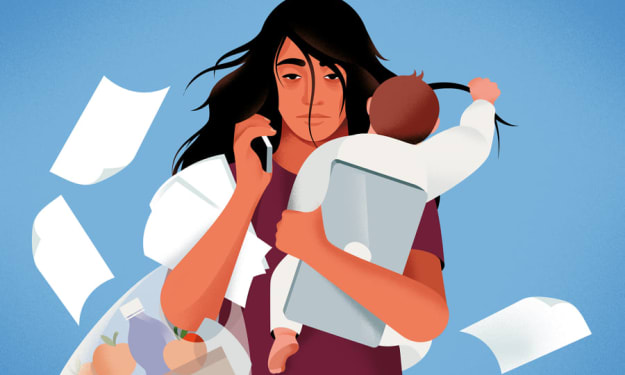Breastfeeding/ all you need to know
how to feed your baby

You know that your body is made for breastfeeding, but it would have been nice if someone shared with you all the essential information, such as how long it should take to breastfeed or when to ask for help, so that it is not so overwhelming. We've put together some breastfeeding tips to help you answer the first 10 questions about breastfeeding and feel more confident when you start your breastfeeding experience.
1. How do I know when to feed my baby?
It is ideal to feed your baby whenever he shows signs of hunger. This gives your baby a wonderful feeling of comfort, allows for better weight gain and ensures that feeding is in line with his needs. You will need to pay attention to signs of hunger, such as sucking your fists, moving your head from side to side, and sticking out your tongue. Newborns should be breastfed at least 8-12 times a day, which means breastfeeding every three hours or so (counted from the beginning of one half to the beginning of the next).
2. How long does breastfeeding last?
Some babies like not to hurry, while others are very fast. Generally, breastfeeding can take between 5 minutes and an hour, from start to finish. The duration of breastfeeding will also depend on the size and age of the baby and how often he is fed.
3. How long should I keep it on each breast?
This depends on how much milk your breasts have. It is advisable to empty one breast before moving on to the next, and if you give one breast at one breastfeeding inning, at the beginning of the next inning you should give the other.
4. I feel pain. What to do?
A little pain or tenderness at the beginning of breastfeeding is normal, especially when you are just starting out. However, any persistent pain should be addressed immediately. If you experience persistent pain on a regular basis, you should not think that you have to endure it. Pain during breastfeeding can normally be resolved with some guidance on breastfeeding and the feeding technique provided by a healthcare professional. You can also try using a nipple protector to protect your nipples between breastfeeding.
5. How do I know if my baby is getting enough milk?
Breastfeeding includes an element of mystery. There is no sure way to know how much milk your baby is drinking, but there are guidelines you can use to check if he is getting enough:
The baby starts to gain weight after you start breastfeeding
By day 10-14, your little one is regaining his birth weight
He continues to gain weight constantly, as expected
The essential idea? The best sign will be the cheekbones in front of you. A happy, lively and growing baby is the best sign that you are producing enough milk.
6. I am taking medication. Can I still breastfeed?
There are many medications that can be taken while breast-feeding, but it is always a good idea to consult your pharmacist.
What about alcohol?
It is advisable not to drink alcohol while breastfeeding. The healthcare professional can provide you with more detailed guidance in this regard.
What about caffeine?
Usually, one or two caffeinated drinks will not bother the little one. This could be a coffee, a tea or a carbonated drink. That being said, too much caffeine could make your baby irritable or keep him awake. And good news for chocolate lovers: in general, chocolate can be consumed in moderate amounts.
7. Does my child need other drinks?
In the first 6 months of life, the baby needs only breast milk. Thank you, breast milk!
8. Can I combine breastfeeding with other ways of feeding?
It usually takes at least three to six weeks of exclusive breastfeeding to get a good supply of milk for your baby and for him to feed properly. This means that the introduction of the bottle in the first weeks could lead to an early cessation of breastfeeding. Once you have established breastfeeding, most babies have no problem alternating between breastfeeding and bottle feeding, if you prefer. It is advisable to use a bottle specially designed for combined feeding, and the healthcare professional can give you additional guidance on how best to start bottle feeding.
9. I'll be back to work soon. Can I still breastfeed?
Yes, you can still breastfeed at work! Absolute. You can continue to give your baby all the benefits of breast milk when you can't be with him by collecting the milk beforehand. To maintain your milk supply, you will need to collect your milk at least as often as when you are breast-feeding normally. Also, try to start collecting milk at least a few weeks before resuming your service. Thus, you will have a reserve of milk collected. When it comes to choosing a pump, you will find that an Avent electric breast pump will give you the most efficiency, while a manual pump is the portable option for mothers on the go. After collection, do not forget to put the milk immediately in the refrigerator or freezer, in storage containers.
10. When can I start feeding my baby solid foods?
It is best to wait until the baby is 6 months old before feeding him any solid food, and this does not mean that you have to stop breastfeeding. You can continue breastfeeding as long as you want. When you are ready, ask your healthcare provider to guide you on the foods you should eat and how.
About the Creator
Maria Ostasevici
Communication and public relations student, Moldova
Instagram profile: maria.ostasevici;
mother of two awesome Dobermans.
BEST VERSION OF YOURSELF- THAT'S TRULY EPIC






Comments
There are no comments for this story
Be the first to respond and start the conversation.